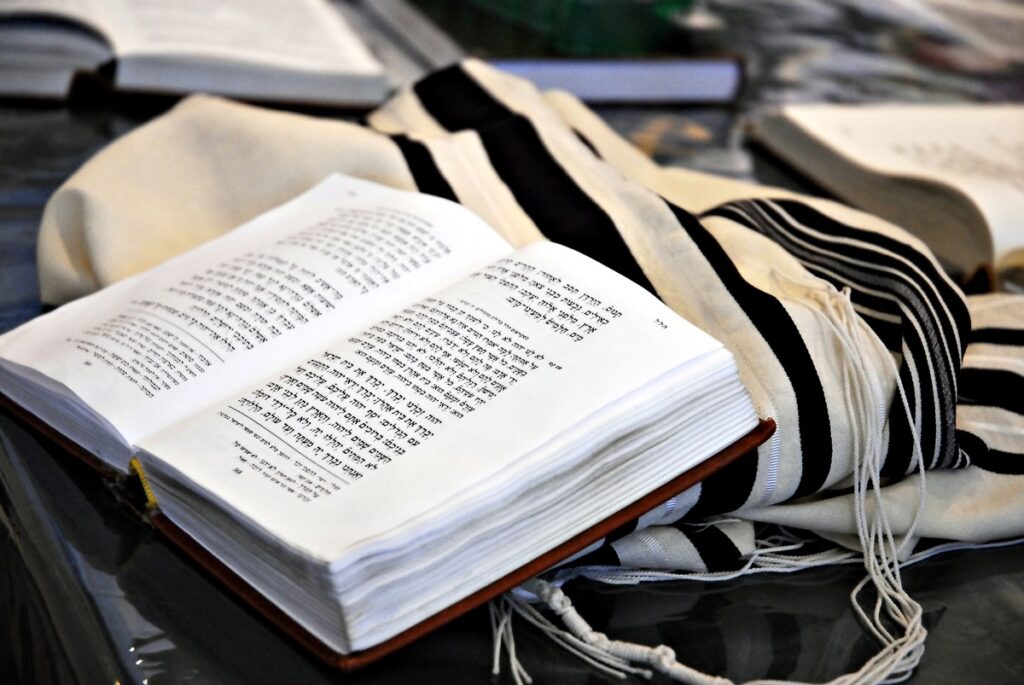In Judaism, prayers for the dead and dying are a central part of the mourning process, reflecting the belief in the eternal bond between the living and the deceased. These prayers offer comfort to the dying and the bereaved, asking for peace, remembrance, and mercy. They provide a way to honor the deceased, both during their final moments and after death, through rituals that connect the family, community, and the divine. Below are seven major Jewish prayers for the dead and dying, complete with their texts, explanations, and guidance on how and when to use them.
1. Shema Yisrael (שְׁמַע יִשְׂרָאֵל)
Purpose: The Shema is one of the most important prayers in Judaism, proclaiming the oneness of God. It is often recited as a final declaration of faith by those nearing death.
When to Use: Traditionally recited as part of a Jew’s final words, or when someone is on their deathbed.
Where the Prayer Can Be Found: Deuteronomy 6:4-9.
Prayer:
“Shema Yisrael, Adonai Eloheinu, Adonai Echad. Hear, O Israel: The Lord is our God, the Lord is One.”
2. The Viddui (וִדּוּי)
Purpose: Viddui is the Jewish confessional prayer recited before death. It is an opportunity to seek forgiveness from God for any wrongdoings, mirroring the Yom Kippur confessional.
When to Use: Recited when death is imminent, either by the dying person or on their behalf by someone close to them.
Where the Prayer Can Be Found: Traditional Jewish prayer books (Siddur) or Yom Kippur Machzor.
Prayer:
“My God and the God of my ancestors, accept my prayer, do not turn away from my plea. Forgive me for all my sins, and if death is upon me, may it atone for my wrongdoings. Grant me healing, if it is Your will, and let me come to You in peace.”
3. The Mourner’s Kaddish (קדיש יתום)
Purpose: The Mourner’s Kaddish is recited by mourners to praise God, affirm faith, and honor the deceased. It is a central prayer in Jewish mourning practices and reflects continuity of life.
When to Use: Recited at funerals, during shiva (the seven days of mourning), and on the yahrzeit (anniversary of death). It is also said during synagogue services.
Where the Prayer Can Be Found: Traditional Jewish prayer books (Siddur).
Prayer (in Aramaic):
“Yitgadal v’yitkadash sh’mei raba (Amen). May His great Name grow exalted and sanctified (Amen). In the world that He created as He willed. May He give reign to His kingship in your lifetimes and in your days.”
…May He who makes peace in His heights, make peace upon us and upon all Israel. Amen.”
4. El Maleh Rachamim (אֵל מָלֵא רַחֲמִים)
Purpose: This prayer asks for God’s mercy on the soul of the deceased, that they may rest in peace. It is a common prayer at funerals and memorial services.
When to Use: Recited at funerals, unveiling ceremonies, and during yahrzeit or memorial services.
Where the Prayer Can Be Found: Traditional Jewish prayer books (Siddur).
Prayer:
“O God, full of mercy, who dwells on high, Grant perfect rest on the wings of Your Divine Presence In the lofty heights of the holy and pure, Who shine as the brightness of the firmament, Unto the soul of [name of the deceased] who has gone to his (her) eternal rest.”
“May his (her) place of rest be in the Garden of Eden. Therefore, may the All-Merciful One shelter him (her) with the cover of His wings forever, And bind his (her) soul in the bond of life. The Lord is his (her) heritage, and may he (she) rest in peace. Amen.”
5. Psalm 23 (מִזְמוֹר לְדָוִד)
Purpose: One of the most well-known Psalms, Psalm 23 speaks of God’s protection, comfort, and guidance, offering reassurance and hope. It is often recited for the dying and at funerals.
When to Use: Frequently recited at funerals, shiva, or during times of grief and remembrance.
Where the Prayer Can Be Found: Psalms 23:1-6 in the Hebrew Bible.
Prayer:
“The Lord is my shepherd, I shall not want. He makes me lie down in green pastures; He leads me beside still waters; He restores my soul. He leads me in right paths for His name’s sake.”
“Even though I walk through the valley of the shadow of death, I fear no evil; For You are with me; Your rod and Your staff—they comfort me.”
6. Tzidduk HaDin (צידוק הדין)
Purpose: This prayer affirms the righteousness of God in His judgment, acknowledging that death is part of God’s plan and accepting His will. It reflects the belief that everything is in the hands of God.
When to Use: Traditionally recited at funerals or graveside services.
Where the Prayer Can Be Found: Traditional Jewish funeral services.
Prayer:
“The Rock! His deeds are perfect, for all His ways are just. A faithful God, never false, true and upright is He. He created us in judgment, He judged us in life, He passed judgment upon us in death.”
7. The Hashkavah (הַשְׁכָּבָה)
Purpose: This prayer is recited for the deceased, asking for their soul to be at peace and for God’s mercy to be granted to them. It is often said in the context of remembering a loved one, particularly on Yom Kippur and other solemn occasions.
When to Use: Recited during memorial services, especially on Yom Kippur, and at funerals.
Where the Prayer Can Be Found: Traditional Jewish prayer books (Siddur).
Prayer:
“May God remember the soul of my loved one, who has gone to his (her) eternal rest. May his (her) soul be bound in the bond of life. May the Garden of Eden be his (her) place of rest. May his (her) memory be for a blessing.”

